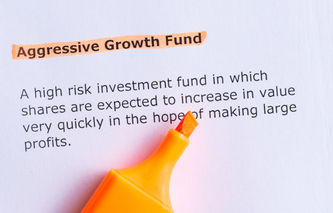Definition
The term blend fund refers to a portfolio of securities that include both growth stocks as well as equities deemed to be undervalued by the market. The objective of a blend fund is to provide investors with higher than average capital appreciation.
Explanation
Also known as hybrid funds, blend funds specialize in purchasing equities of companies the fund's management team estimates are undervalued by the market, as well as companies they believe will experience above-average growth through capital gains. As the name implies, this is accomplished in two ways:
Purchasing equities of companies the fund's management team estimates will have above average growth in either earnings or revenues. As such, the value of these equities is expected to increase faster than average.
Purchasing equities of companies the fund's management team deems undervalued. This is believed to be a temporary condition, and the company's shares will eventually increase at a rate that outpaces the overall market.
Blend funds are frequently subdivided into categories that are based on the market capitalization of the equities held in the portfolio. For example, there can be small cap, mid cap, and large cap blend funds. Investors choosing blend funds will have relatively high risk tolerance scores, since the focus is on capital appreciation. For the same reason, these funds can be expected to exhibit above average volatility.



